1. Text
[page 310]
(iv) Bahá'ísm
For the sake of completeness, it seems only right that reference
should be made here to the Babi and Bahá'í movements, which arose
in the early 19th century in Persia as derivatives from Shi'a Islam.
The original founder, a young man claiming to be a descendant of
the Quraish, called Mirza 'Ali Muhammad, said that he was the
current Manifestation of a 'hidden Imam' or successor to the Prophet's
nephew, Ali, the preceding eleven Imams being actual descendants
of Ali's younger son, Ali Husayn. He declared himself in 1844, and
was put to death in 1850, after appointing as his successor a lad of 20,
Mirza Yahya, who had a half-brother somewhat older than himself
called Baha'ullah. The youthfulness of Mirza Yahya led to a good
deal of the affairs of the Babi community being conducted by
[page 311]
Baha'ullah. Eventually, in 1867, the latter openly announced that he
himself was the true successor to Mirza 'Ali Muhammad. There was
a violent quarrel between the two half-brothers and their supporters,
and each charged the other with attempts at poisoning. Eventually
the Turkish government separated the two protagonists and exiled
them, but not before some persons on both sides had been killed.
After these not very edifying proceedings, the main power came to
rest in the hands of Baha'ullah and his supporters. Baha'ullah asserted
that the original Bab, Mirza 'Ali Muhammad, was nothing more
than his harbinger, (a sort of Shi'a John the Baptist) and that he himself
was a new and transcendent manifestation of God — not simply a
prophet like Muhammad, but a quasi-divine Being, carrying still
further the succession which began with Abraham, and destined to be
followed by other Revelations: and he made his appeal to all people,
and not simply to Moslems. The next step was the conversion to
Bahá'ísm of a Syrian called Ibrahim George Khayru'llah, who had
learnt English, and had married an English wife. In 1892 he went to
the so-called Parliament of Religions at Chicago, and lectured there,
attracting a good deal of attention. This has led to the development
of a community of Bahá'ís in America, numbering some thousands,
and to the erection of a huge Bahá'í temple at Evanston, Minnesota.
The Bahá'ís now regard themselves as members of a new religion,
and not as Moslems. They possess an extensive sacred literature, some
of it composed by Mirza 'Ali Muhammad, and some of it by Mirza
Yahya, but most of it by Baha'ullah, in the form of epistles, which
are regarded by Bahá'ís as of the nature of verbal revelations, and
are extremely numerous. The followers of Baha'ullah have split into
two sects, the larger being led by Abdu'l Baha, and the smaller by
his brother, Muhammad Ali. There is another large temple at Haifa.
Bahá'ísm, apart from its not very satisfactory early history, possesses
some teachings which are salutary, even though not original.
It is said to be dwindling in the Middle East, and shows no sign of
being able to supersede Christianity as a universal religion. Indeed an
impartial observer in 1931 declared that the conversion of a Moslem
to Bahá'ísm, so far from being an advance, was actually a step on
the road to materialism, and that Bahá'ísm as a religion did not stand
very high. The idea of an hereditary religious leader, though common
[page 312]
enough in the Middle East, does not seem generally attractive. In
general, the teaching seems to be a kind of Asian Unitarianism, with
a strong emphasis upon world-peace. There seems to be a vigorous
effort at the present time, probably subsidized from America, to
further the claims of Bahá'ísm, and the number of its adherents
is said to be on the increase.
Note 1. The following quotation from the recent work of Pere
Danielou, The Salvation of the Nations, may serve well to end this
section: One can stifle from lack of prayer just as one can stifle
from lack of air. Our Western world in its restless and activistic
life has completely lost this sense of prayer. That is why there are
so many mentally ill and eccentric in our midst: people don't pray
enough. There is a well of silence within themselves to which they
have no access, a domain of peace they know not how to enter.
Islam has held on to these things.
Note 2. A valuable treatise called The Qur'an as Scripture was
composed in 1952 by Arthur Jeffery, Professor of Semitic Languages
at Columbia University, New York. It is not only an excellent
critical account of the Qur'an in particular, but contains some
valuable remarks upon sacred books in general.
2. Image scans (click image for full-size version)
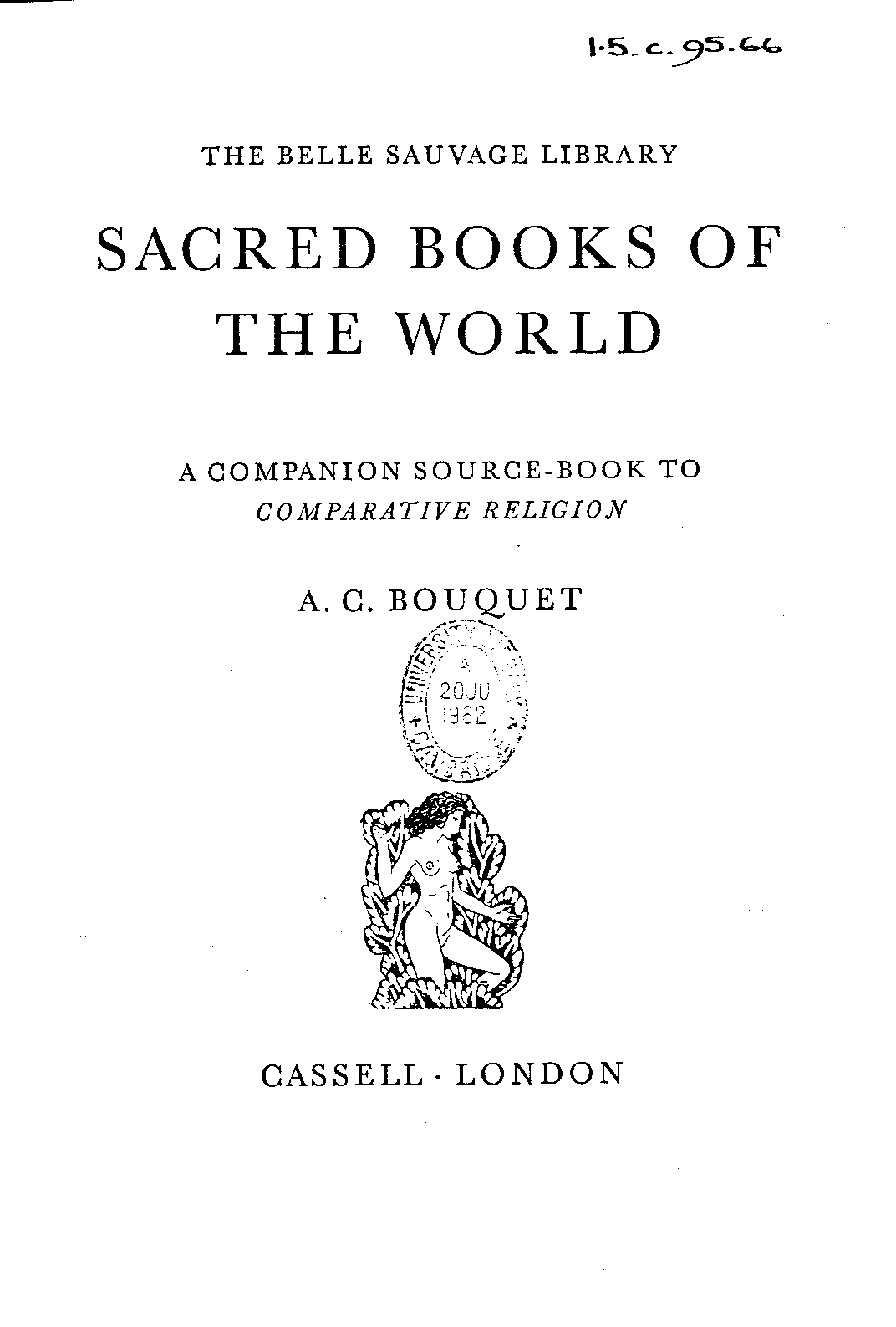
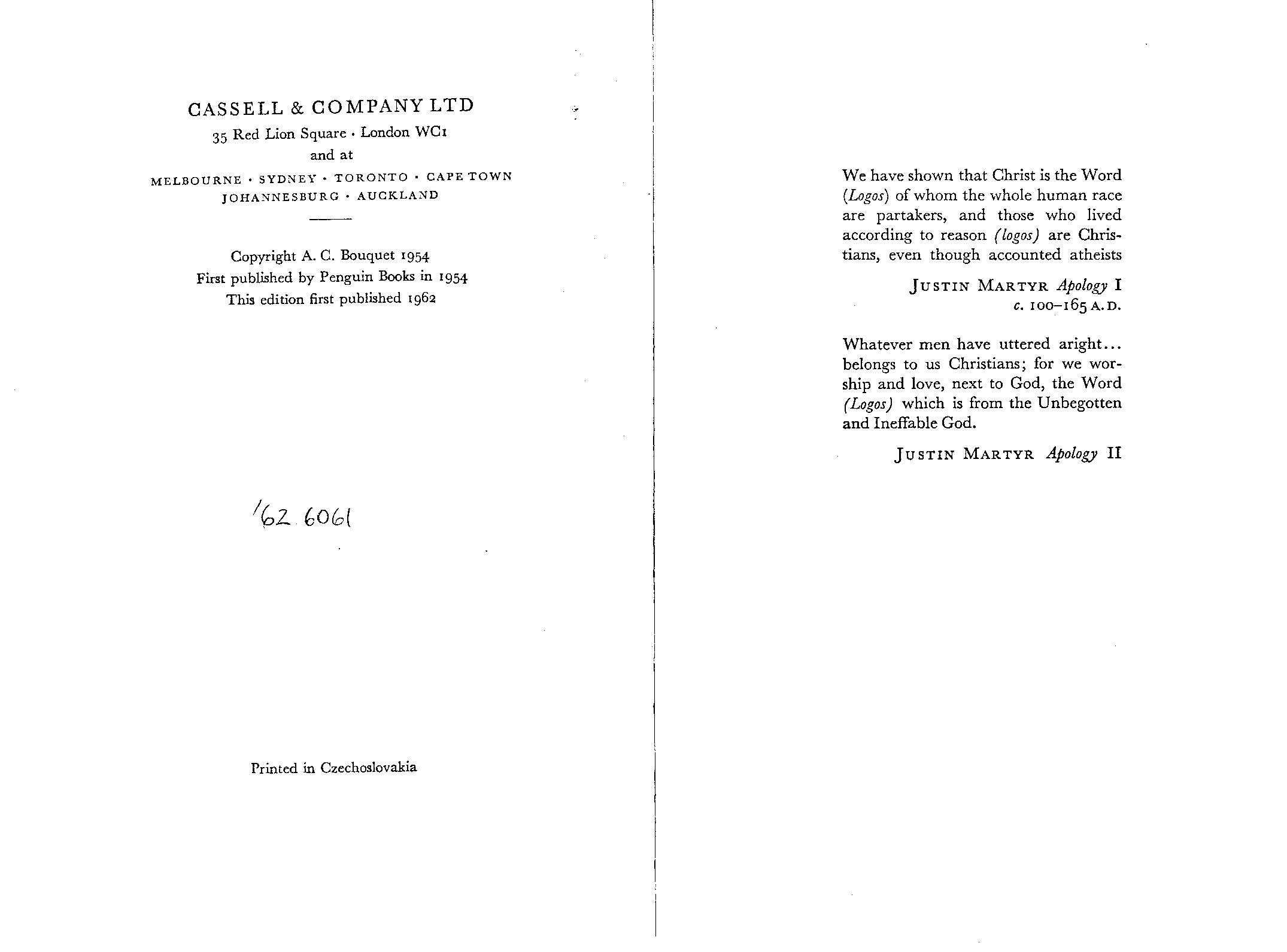
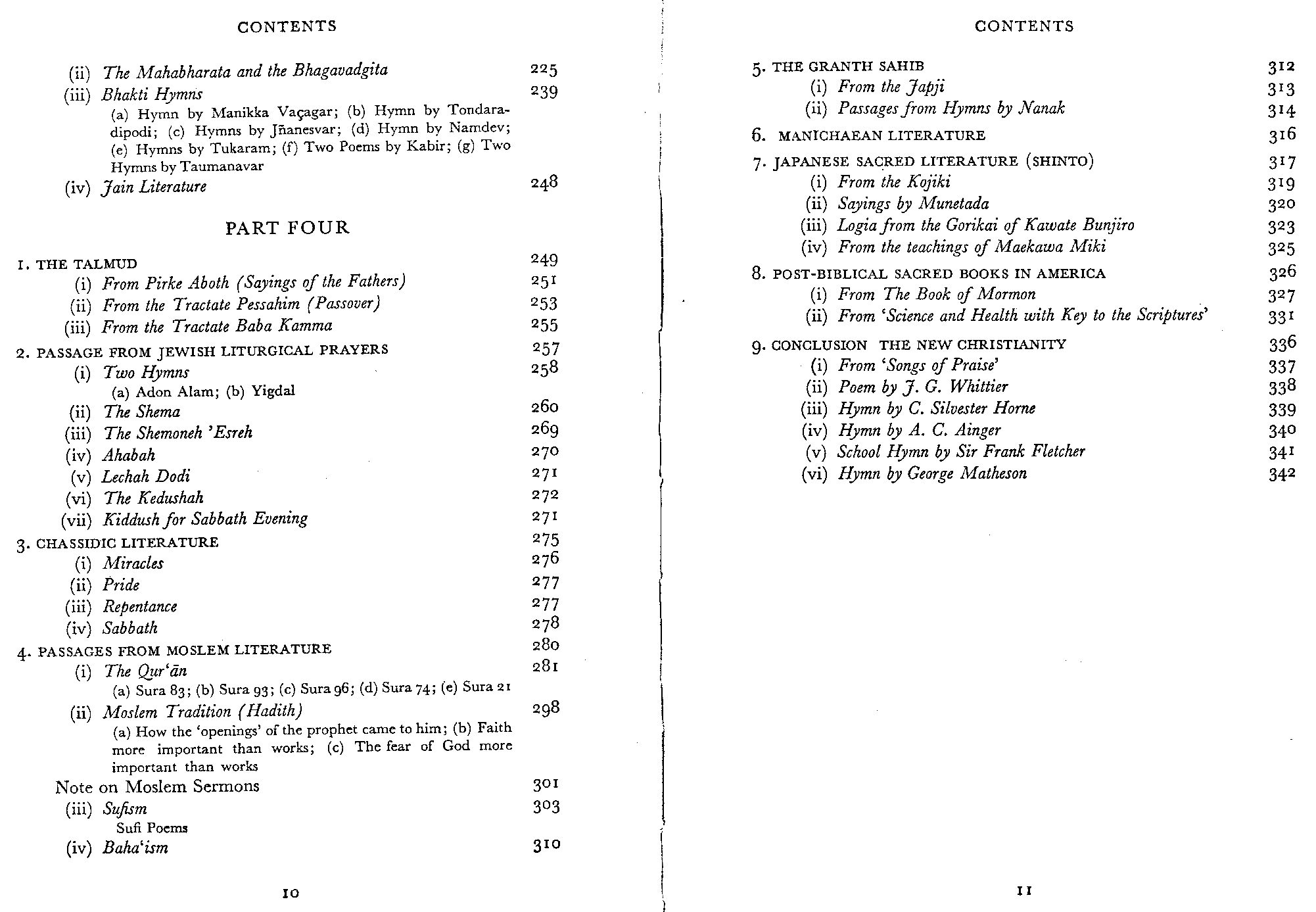
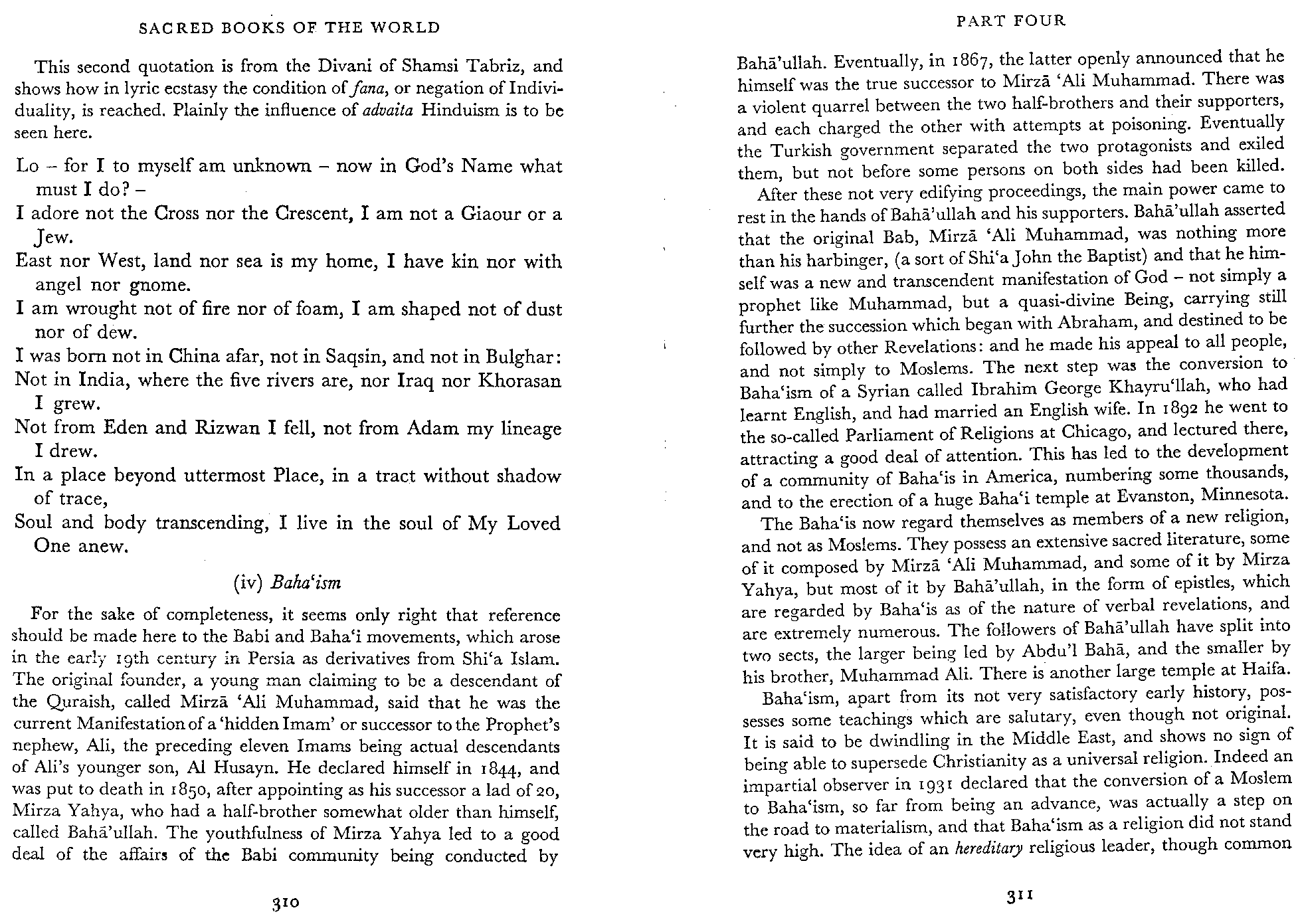
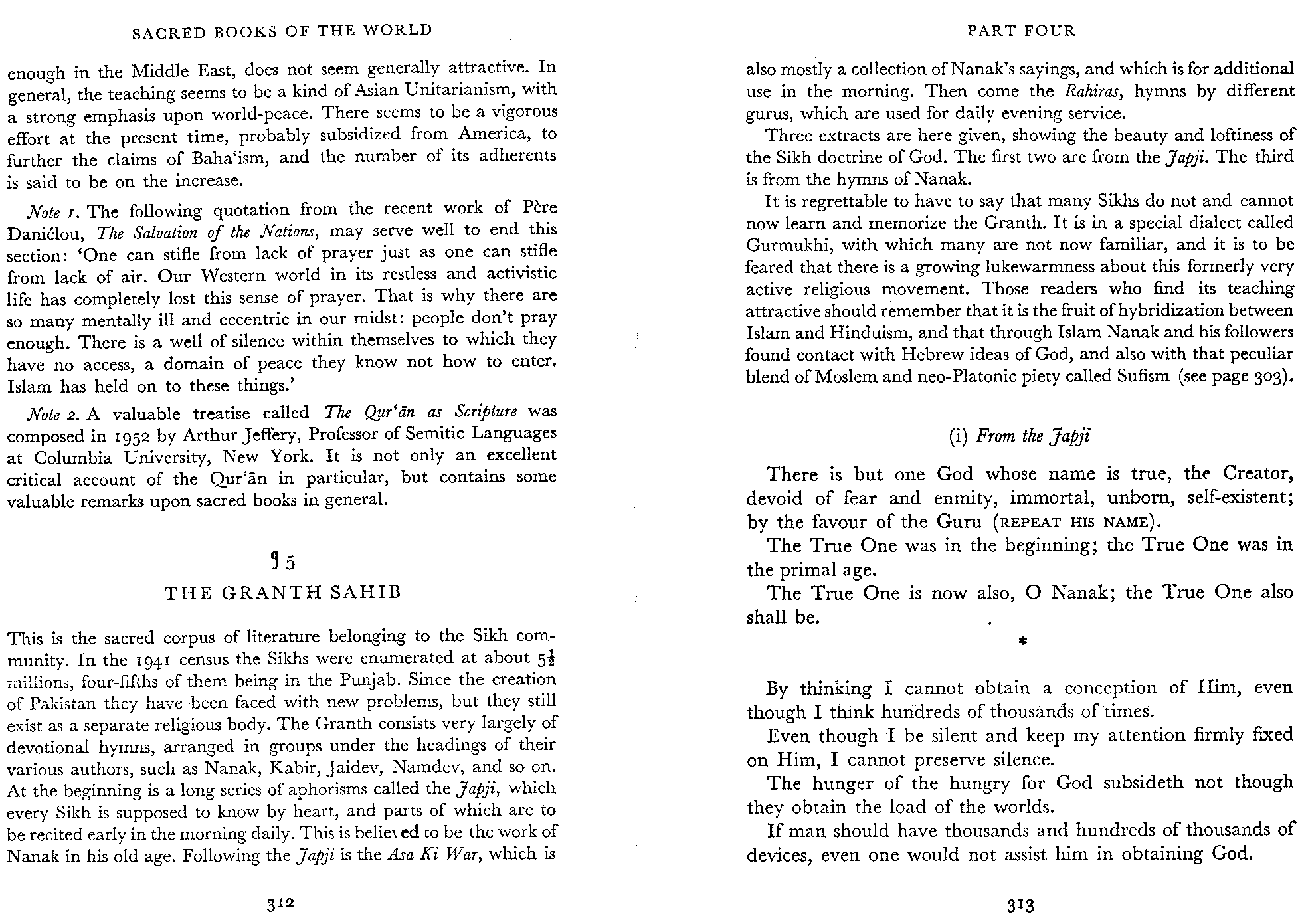
|
